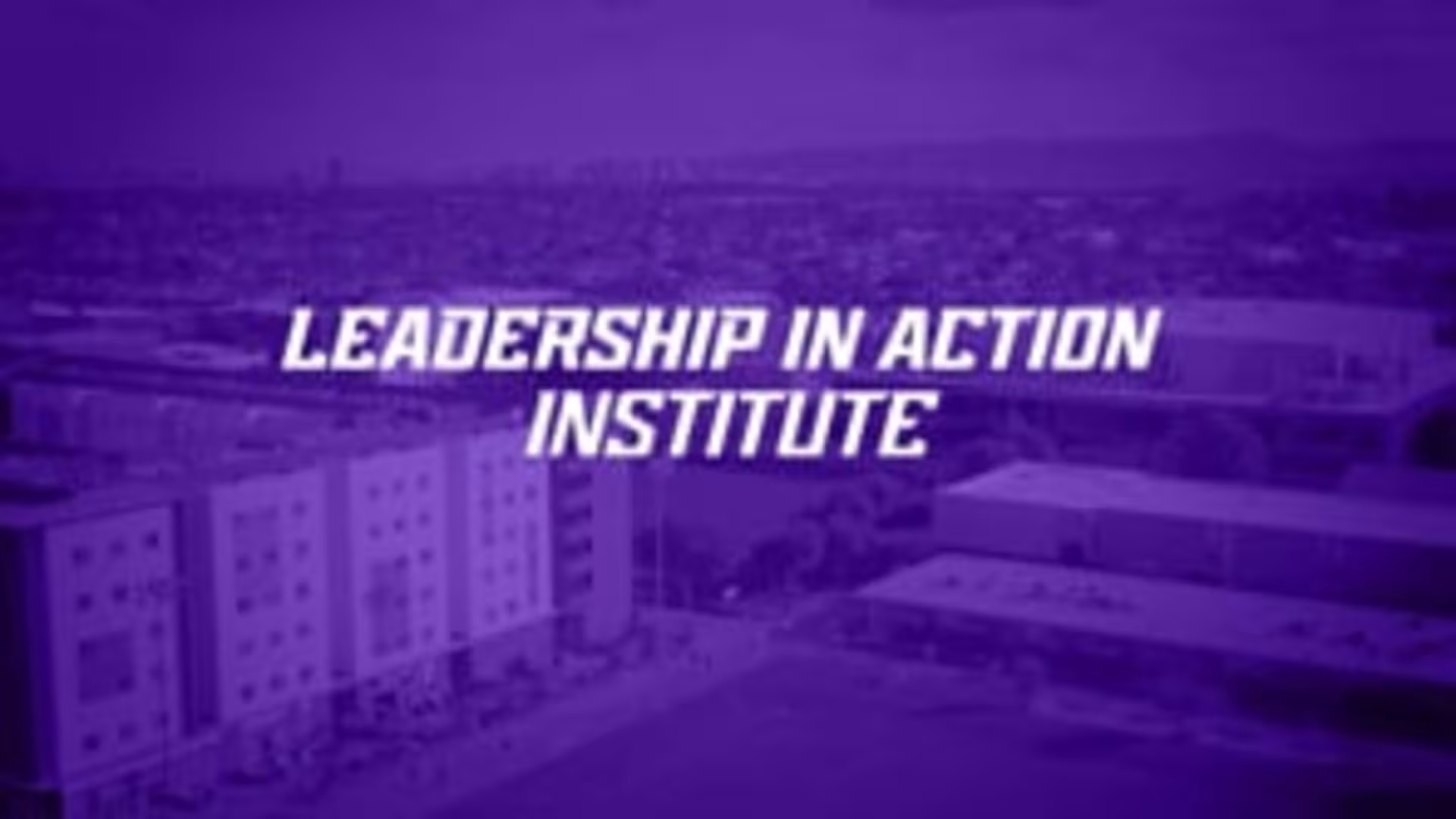“Management” and “leadership” are terms that are often used synonymously. Although these terms do have some overlap, there are distinct differences in the purpose and characteristics of a manager and a leader. Understanding the differences between leadership and management is vital at all levels of an organization.
Defining the Terms: Management vs. Leadership
Organizations rely on many different roles to keep operations running smoothly and efficiently. Managers and leaders have separate focuses regarding the teams they work with. Managers aim to set and achieve goals through internal processes, while effective leaders guide change by inspiring and supporting individuals. When it comes to guiding teams, mastering management versus leadership and understanding the differences is essential for organizational success.
What Is Management?
Dr. Marnie Davis, assistant professor of business management at Grand Canyon University, explains, “A manager is someone who focuses on setting goals, organizing key resources and ensuring that tasks are completed efficiently. A common saying that encapsulates the role of an effective manager is that they 'keep the trains running on time.’”
Managers are tasked with meeting the goals and objectives of an organization. They do this by supervising their teams’ output and ensuring the work is done well and completed on time. Management tasks often resemble a clear “to-do” list with quantifiable tasks that can be checked off when completed.
What Is Leadership?
A leader’s “to-do” list is more difficult to quantify into a neat checklist because the objectives of their role tend to be more abstract. Leaders focus on intangible goals related to morale, creativity and motivation. Davis adds, “A leader, on the other hand, is centered around inspiration, vision and influence. Leaders motivate their teams by presenting a compelling vision for the future. They embrace innovation and are adept at navigating change.”
One of the main differences between leadership and management is that leaders are less centered on organizational goals and more focused on team development. To summarize, “While management tends to focus on systems, processes and outcomes, leadership emphasizes people, vision and purpose. Emotional intelligence serves as the bridge between the two — it enables professionals to go beyond simply completing tasks and instead foster relationships, build trust and cultivate a healthy organizational culture,” says Davis.
Key Skills in Management and Leadership
Managers and leaders have a different set of skills that are considered necessary to succeed in their roles.(See disclaimer 2)
Management skills:
• Administration
• Attention to detail
• Communication
• Delegation
• Strategy
• Time management
Leadership skills:
• Active Listening
• Coaching
• Emotional intelligence
• Empathy
• Motivation
• Team building
“One of the most common misconceptions is the belief that managers and leaders possess the same skill sets. People often describe a manager they admire as a ‘leader’ and one they do not see as merely a ‘manager’ or ‘boss.’ In reality, both roles are distinct yet equally essential to the success of an organization.”
— Marnie Davis, Assistant Professor of Business Management, Colangelo College of Business
Good Managers Are Not Always Good Leaders
While great managers can also be great leaders, the two qualities do not always go hand in hand. One famous example of a leader who was not considered to have a successful management style is the co-founder of Apple, Steve Jobs.(See disclaimer 3)
“It’s indisputable that Jobs was a visionary leader. He inspired his team to be ambitious and to achieve what was once thought impossible. However, his management skills — particularly early in his career — were not a strength. Jobs was a perfectionist, often lacking people skills. He could be harsh, impatient and was considered difficult to work with, which ultimately led to him being forced out of the very company he helped create.”
Although it is possible to be both a great manager and have a successful leadership style, the two roles have different focuses that do not always overlap. This example highlights the importance for organizations, and especially their employees, to understand the difference between a manager and a leader. When the expectations of leadership versus management are mixed up, it can cause confusion and mistrust among teams.(See disclaimer 4)
Career Differences for Managers vs. Leaders
Do leaders and managers have the same career opportunities? The answer is not a simple yes or no. Although leaders and managers sometimes have similar job titles, there are still distinct differences between leadership and management when it comes to their purpose and how that is reflected in their performance. Although managers typically have the job title of “manager,” the role of a leader within an organization may take many forms. Some leaders may take on a management role, but this is not always the case. Leaders can work within a team without having a management title.
According to Davis, both management and leadership skills remain in demand. She explains, “Today’s business world is complex and global, making the environment both dynamic and highly competitive. With that in mind, I believe organizations value leadership and management skills equally. Some companies choose to hire different individuals for each role, but those who can master both leadership and management are especially needed.”
Some of the career opportunities within management and leadership include:
• Sales manager
• Administrative services manager
• Facilities manager
• Industrial production manager
• Compensation and benefits manager
• Human resources manager
• Training and development manager
• Logistician
• Management analyst
Education Requirements for Leadership vs. Management
The entry-level education for management roles typically requires at least a bachelor’s degree, although some industries prefer managers to have a master’s degree.(See disclaimer 5) You can develop leadership and management skills by earning a degree from an accredited institution.
According to the U.S. Bureau of Labor Statistics, training and development managers most commonly have a bachelor’s degree in business, communication or other related fields.(See disclaimer 6) Aspiring managers may also benefit from a master’s degree in leadership, business administration or human resources.

Management vs. Leadership in the Remote Work Era
With the growing popularity of remote work, it is important to keep in mind how leadership and management can be most effective when working with remote and hybrid teams and how this might differ from in-person offices. Remote work can pose unique challenges to anyone responsible for their team’s performance and it is important to remember how this differs between leadership versus management roles. Davis explains, “When working with remote or hybrid teams, managers must be very clear about goals, expectations, deadlines and processes. To be effective, they need strong systems in place to track results and deliverables.” Remote work emphasizes the need for strong management skills.
Providing an environment that is insightful, inspiring and connected can be a challenge for leaders working in a remote context. Davis discusses the importance of leadership skills when working with a remote team. “Leaders, on the other hand, must master soft skills such as communication and trust-building. They should actively create moments of connection and be proactive in celebrating wins, sharing direction and fostering team cohesion. These efforts can be more challenging in a remote environment, but they are essential for maintaining engagement and morale.”
Leadership vs. Management: Shaping Your Career
If you are interested in a career in management or leadership, Grand Canyon University has several relevant degrees to help you develop the skills needed in the industry. There are many options for earning your degree, including bachelor’s, master’s and doctoral degrees, as well as the option to study in-person or online. Earning an online Master of Science in Leadership can teach you advanced business competencies such as team-leading, communication and business ethics. For those interested in further graduate study, our Doctor of Business Administration with an emphasis in Management degree can prepare you to confidently guide teams through problem-solving and management theory application.
Lead With Boldness, Manage with Confidence
Apply now to master both management and leadership skills in our career-shaping degree programs.






